From whale watching to bridge watch
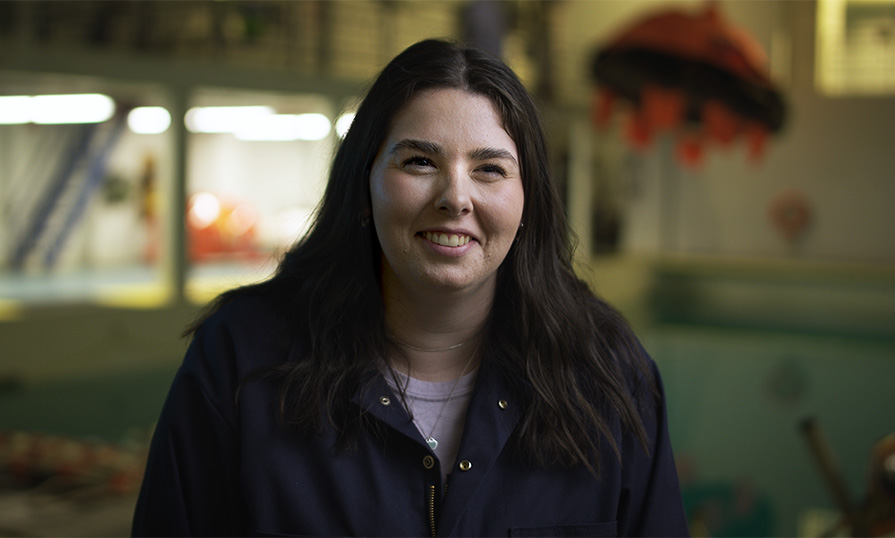
Get to know Hannah - Bridge Watch Rating student
Name: Hannah
Program: Bridge Watch Rating, class of 2026
Campus: NSCC Nautical Institute, Port Hawkesbury, NS
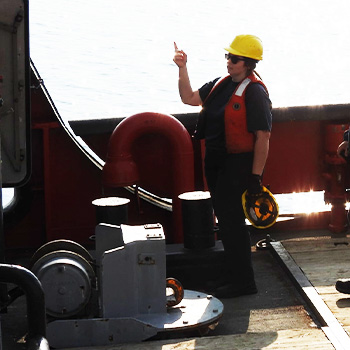
Growing up in a coastal community in New Brunswick, Hannah has always been intrigued by the ocean. She’s a fifth-generation seafarer whose family history goes back centuries - from her father’s service in the Coast Guard to generations of lobster fishermen before him. Her childhood was spent fishing, exploring the coast and tagging along on her grandparents’ whale-watching tours.
For Hannah, the sea is a place of adventure where every day presents something new - from weather changes to unexpected encounters with marine life. Its unpredictable beauty is what led Hannah to an interest in a marine career and NSCC’s Bridge Watch Rating program.
Read more about what Hannah's learning and the dream job she’s striving for.
Q&A with Hannah
What are some things you learn in the Bridge Watch Rating program?
Most of our learning is hands-on, which I really enjoy. We spend a lot of time on knot-tying and are thoroughly tested on our splicing skills (connecting ropes). We also practice throwing heaving lines and learn how to properly moor a vessel against a pier. Another important part of our training is performing lookout duties - spotting and reporting other vessels, objects in the water, pollution, icebergs and more. We also focus heavily on safety and earn all the certifications required to work on a vessel.
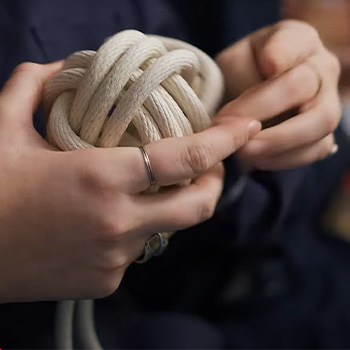
What are the instructors like?
Our instructors are great. They have a lot of experience working in the industry and are always there to help students - whether it’s related to class work, or if a student is struggling personally or financially - the instructors are always there to help.
What is it like to study Bridge Watch Rating?
The facilities at NSCC’s Nautical Institute are phenomenal, with state-of-the-art simulators that provide realistic training. One of my favourite experiences has been using firefighting simulators. Before this program, I had never fought a fire in my life, but the training made it feel like the real thing. We tackled simulated fires in a ship’s galley and engine room, giving us hands-on experience in how to respond effectively if a real fire were to break out on board a vessel.
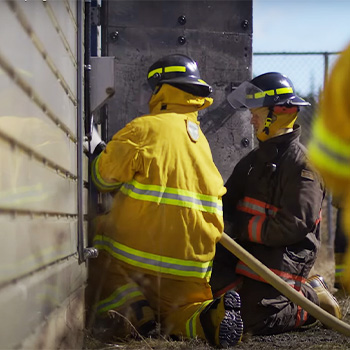
Is there room for advancement?
Yes, you can definitely build on the program. There are so many different avenues within this field. You can work your way up through the ranks and eventually become a Master Mariner (highest-ranked licensed mariner, equivalent to a ship's Captain).
What advice do you have for someone who is considering a career in the marine industry?
Anyone can do it if you just put your mind to it. We're all equals in that way, you just have to try and put in the effort.
What is your dream job and how will you get there?
I just accepted a job placement with Atlantic Towing so that's where I'm starting. I'd like to work my way up through the ranks to eventually get my captain's papers to become a Master Mariner one day and live a life on the water.
I would love to work internationally - my dream is to work on a private yacht someday - that’s the long-term plan. It may be a bit of a reach, but it feels like things are starting to line up for me.
A'paqt funding for women and Indigenous Peoples
To help meet the marine industry demand and diversify the workforce, the federal government provides funding through the Ocean Dream Award for women and Indigenous Peoples who are enrolled in a marine program. Those eligible may qualify to have 90% of program costs covered by a bursary.
Related Stories
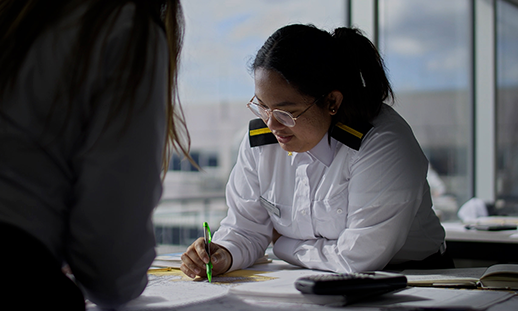 Charting the course
Charting the course
With no previous experience at sea, Michaela was nervous to join NSCC’s Marine Navigation Technology program—but with hands-on learning and supportive instructors, she’s charting the course to a new world she loves.
 A desire to explore the world
A desire to explore the world
Julianna is following in her grandfather’s footsteps and has her sight set on a career at sea. A desire to explore the world while maintaining work-life balance is what drew Julianna to NSCC’s Marine Navigation Technology program.
